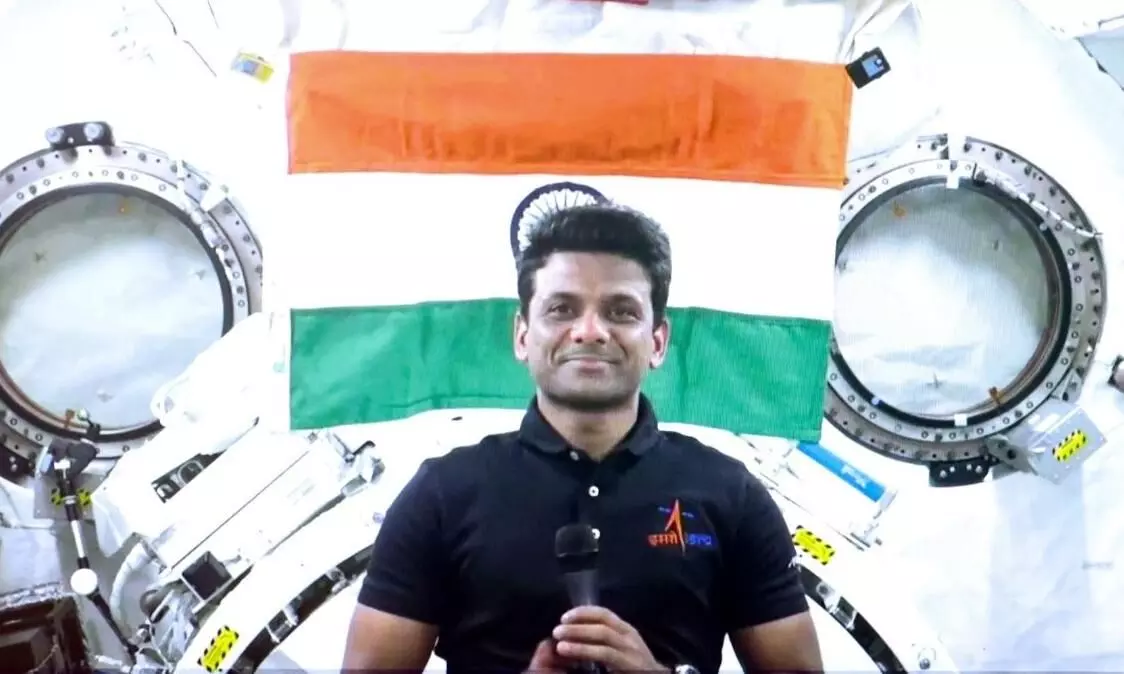Studying microalgae, muscle loss in microgravity, Shukla tells PM

New Delhi: Astronaut Shubhanshu Shukla on Saturday said he was studying whether specific supplements can delay muscle loss in microgravity conditions, which could help develop medicines for muscle degeneration in elderly people. In an interaction with Prime Minister Narendra Modi from the International Space Station, Shukla said he was also scheduled to conduct an experiment on the growth of microalgae, which are highly nutritious, in microgravity conditions. “If methods can be developed to grow them (microalgae) in larger quantities based on the findings in space, it could significantly aid food security on Earth,” Shukla told the prime minister.
Shukla, who is the second Indian to travel to space after Rakesh Sharma, reached the International Space Station on Thursday along with three other astronauts as part of the commercial Axiom-4 mission for a 14-day stay during which the crew will be part of a series of science experiments. “Shubhanshu, today you are the farthest from the land of India, but the closest to the hearts of every Indian,” the prime minister said. The prime minister asked Shukla to diligently record his observations and learnings during the mission which would be of immense value for India’s future missions. “India must move forward with Mission Gaganyaan, build its own space station, and achieve the landing of an Indian astronaut on the Moon,” Modi said.
The prime minister said Shukla’s historic journey was not limited to space alone but would accelerate and strengthen India’s progress toward becoming a developed nation. Modi asked Shukla to give a message to the youth, who looked forward to him for inspiration. “The sky has never been the limit, not for me, not for you, and not for India,” Shukla said in his message to the youth. Shukla urged youngsters to hold onto this belief, as it would guide them forward in illuminating their own and the nation’s future. For the first time Indian scientists have designed seven unique experiments which he has taken to the space station, he said. The astronaut said the first experiment focused on stem cells that sought to test whether specific supplements can prevent or delay muscle loss in the absence of gravity. Shukla said the outcome of this study could directly help elderly people on earth who face age-related muscle degeneration. Shukla said another experiment focuses on the growth of microalgae. He said that though microalgae were small in size, they were highly nutritious. “If methods can be developed to grow them in larger quantities based on the findings in space, it could significantly aid food security on earth,” Shukla said. He said one major advantage of conducting experiments in space is the accelerated pace of biological processes, which enabled researchers to obtain results much faster than on earth.



